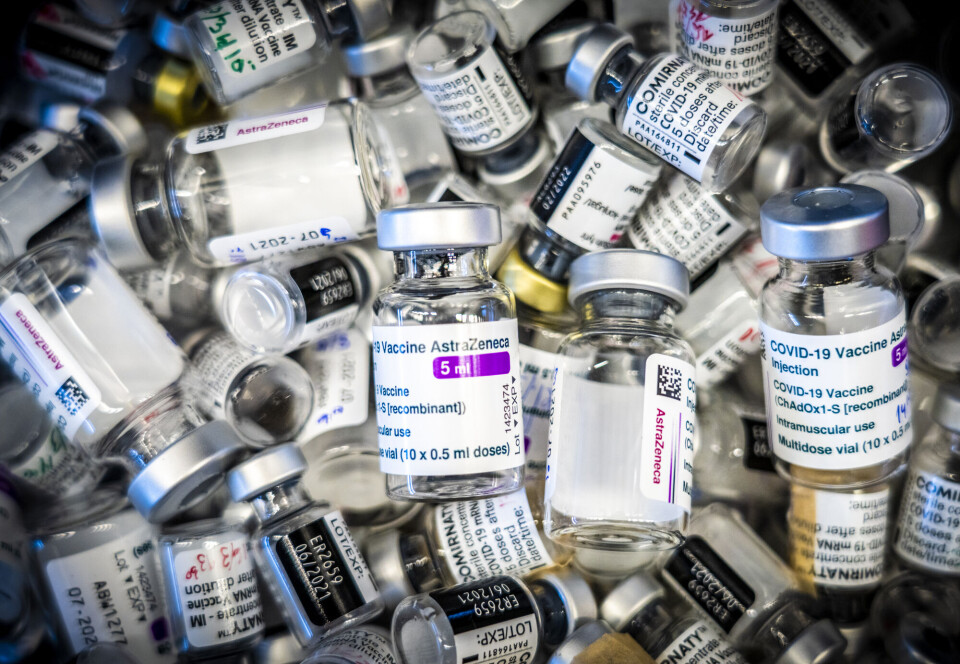
Vaccination protects against long Covid
Researchers have looked at Covid-19 data from 3.9 million Norwegians. The risk of getting long Covid after you first fell ill was 36 per cent lower in people who were vaccinated.
Researchers at the University of Oslo (UiO) have extracted data from Norwegian health registries from 2018 to 2021 for 2,364,651 vaccinated and 1,532,935 unvaccinated people. They were divided into four groups, based on age and whether they belonged to risk groups.
In all groups, it turned out that being vaccinated significantly reduced the risk of developing long Covid, with the total reduction of risk by 36 per cent.
“We can confirm how important vaccination is in preventing long Covid. We also confirm our previous international findings,” Professor Hedvig Nordeng from the University of Oslo’s Department of Pharmacy tells NTB.
Most viewed
Nordeng led the work on the analysis, which was recently published in the medical journal The Lancet Respiratory Medicine.
The research is part of a massive international collaboration to survey the effect of coronavirus vaccines. The Norwegian findings support and confirm similar investigations with data from over 20 million people from Great Britain, Spain and Estonia, according to the Nuffield Professors of Orthopaedic Surgery (NDORMS) at the University of Oxford.
Significant difference
Among those vaccinated who tested positive for Covid-19, 1,576 people had long Covid symptoms three to twelve months after the disease. The number of long Covid symptoms was twice as high among unvaccinated people: 2,922 people.
The Norwegian research also shows that there was a significantly lower risk of acute heart or lung complications after Covid if you were vaccinated beforehand.
The findings applied regardless of which coronavirus vaccine had been taken. Vaccinated persons therefore not only have a lower risk of a serious course of Covid-19 if they become infected, they also have a lower risk of further side effects from the disease.
In the current study, where the aim was to see the extent to which vaccination affects risk, everyone used the same definition for long Covid. At least three months after the illness, the person must have at least one of the 25 symptoms that the World Health Organization (WHO) has linked to long Covid. These must also be symptoms that the person did not have before the illness.
Extremely exciting
The international collaboration to survey the effect of corona vaccines is based on the countries using a common data standard: the Observational Medical Outcomes Partnership (OMOP).
“One of the things I have experienced as the most exciting in this work is that it shows how we can collaborate internationally. At the University of Oslo (UiO) we have now built a data analysis system and transformed Norwegian health data to the OMOP data standard. This means that we can verify findings from international research more quickly,” Nordeng says.
“It is very important to understand the effectiveness of vaccines and medicines to prevent or reduce the severity of disease in the population. When studies are carried out, it is of fundamental importance that the research is transparent and publicly available, so that we can verify findings. Then we have to use common analysis standards and coding,” says the professor, who believes that such global research collaborations are the future.
The OMOP standard is now used by the European Medicines Agency (EMA) in the DARWIN EU "Data Analysis and Real-World Interrogation Network, in which Professor Nordeng is a participant.
“It has almost been a paradigm shift in how we work. When it is really urgent for society to get answers to questions about the safety or effectiveness of medicines and vaccines, it should not take three years, it should take three months,” she says.
———
Translated by Nancy Bazilchuk
Read the Norwegian version of this article on forskning.no





































